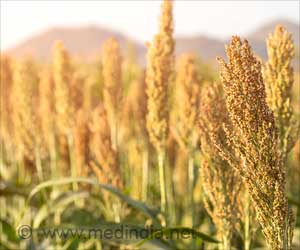Switch to a healthy diet to save water and your health. Healthy eating can save the planet and substantially reduce the water footprint.

‘Changing your diet can improve your health and save water. Healthy eating may help save the planet and substantially reduce the water footprint of people's diets.’





Researchers compared these three diet patterns, defined by respective national dietary guidelines, to the current actual food consumption, using available data from more than 43 thousand areas in France, the UK and Germany.They found that eating more healthily could substantially reduce the water footprint of people's diets, consistent across all the geographical entities analyzed in the study.
The study is the most detailed nationwide food consumption-related water footprint ever made, taking into account socio-economic factors of food consumption, for existing and recommended diets.
Influences on the Food We Eat
The scientists also show how individual food consumption behavior - and their related water footprints - depend strongly on the socio-economic factors like age, gender and education level.
Advertisement
For example, the study shows how in France, the water footprint of milk consumption decreases with age across the municipalities analyzed.
Advertisement
Background
The water footprint is defined as the total volume of freshwater that is used to produce goods consumed, food in this particular case.
The scientists used national dietary surveys to assess differences in food product group consumption between regions and socio-economic factors within regions.
The diet scenarios analyzed in the study take into account total daily energy and protein requirements as well as maximum daily fat amounts.
They are based upon national dietary guidelines, in which for every food product group-specific recommendations are given according to age and gender.
By downscaling national water footprints to the lowest possible administrative boundaries within a country, the scientists provide a useful tool for policymakers at various levels.
The methodology could also be applied to other footprints assessments - like the carbon, land or energy footprints related to food consumption.
Animal products - and especially meat - have a high water footprint.
The average European diet is characterized by overconsumption in general, particularly of animal products.
A healthy diet would contain less sugar, crop oils, meat and animal fats, and more vegetables and fruit.
Due to the numerous negative impacts of an intensive livestock production system on the planet's resources and ecosystems, as well as the growing demands of non-western countries for animal products, moving to a more resource-efficient (and healthier) vegetable-rich diet in the EU is a necessity.
Source-Eurekalert















